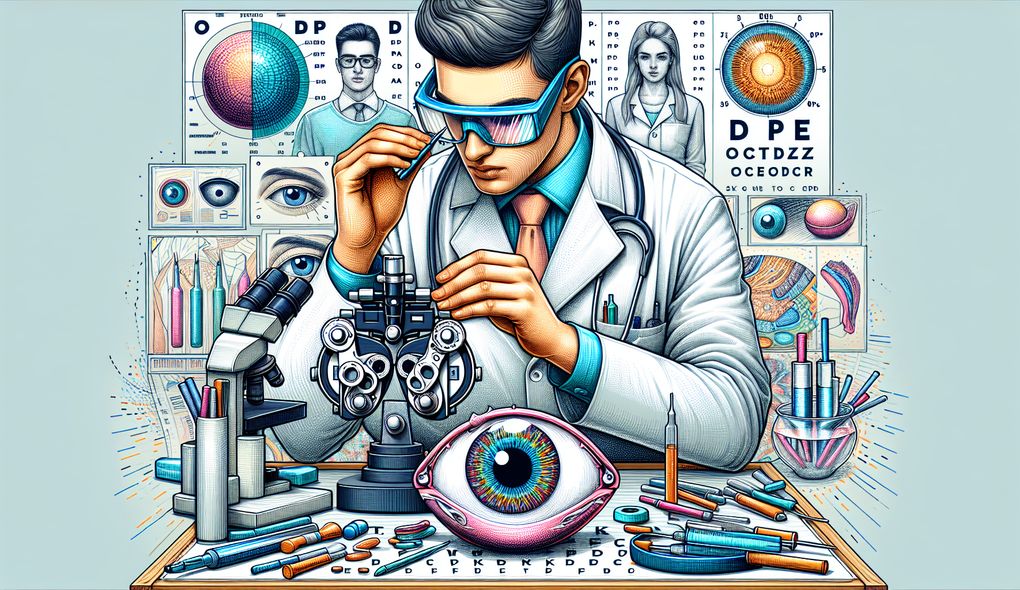Tell us about a time when your attention to detail and precision was crucial in surgical or clinical practices.
JUNIOR LEVEL

Sample answer to the question:
During my residency program, I encountered a patient with a corneal ulcer. To ensure precision in diagnosis, I conducted a comprehensive evaluation of the patient's symptoms, medical history, and performed various diagnostic tests. Attention to detail was crucial in accurately identifying the cause of the ulcer and determining the appropriate treatment plan. I meticulously analyzed the lab results, including cultures and sensitivity tests, to select the most effective antibiotic regimen. Through regular follow-ups, I closely monitored the patient's progress, making adjustments to the treatment plan as needed. Ultimately, my attention to detail and precision resulted in the successful resolution of the corneal ulcer.
Here is a more solid answer:
During my first year as a Junior Cornea Specialist, I encountered a patient with a complex corneal dystrophy. To ensure the highest level of precision in diagnosis and treatment, I conducted an extensive evaluation of the patient's medical history, performed various diagnostic tests, and collaborated with other specialists. I meticulously examined the patient's cornea under a microscope, identifying subtle abnormalities that guided the diagnosis. Additionally, I utilized advanced imaging techniques to analyze corneal thickness and topography, providing valuable insights into the severity and progression of the condition. This attention to detail allowed me to develop a personalized treatment plan, which included the use of specialty contact lenses and targeted medications. Through regular follow-ups and reassessments, I carefully monitored the patient's response to treatment, making adjustments as necessary. Ultimately, my precision and attention to detail resulted in a significant improvement in the patient's vision and quality of life.
Why is this a more solid answer?
The solid answer provides a more detailed and comprehensive example of a situation where attention to detail and precision were crucial in a surgical or clinical practice. It includes specific actions taken by the candidate and demonstrates their ability to collaborate with other specialists and utilize advanced imaging techniques. However, the answer could further improve by incorporating additional evaluation areas, such as communication with the patient.
An example of a exceptional answer:
During my fellowship training in cornea and external disease, I encountered a challenging case of Fuchs' endothelial dystrophy. The patient presented with severe corneal edema that significantly compromised their visual acuity. To ensure the highest level of precision in both diagnosis and surgical intervention, I conducted a thorough assessment of the patient's corneal health, including specular microscopy to evaluate endothelial cell density and corneal pachymetry measurements. This meticulous evaluation allowed me to accurately determine the stage and severity of the disease, which in turn guided the decision-making process for surgical intervention. As part of the surgical team, I worked closely with the attending surgeon to perform a Descemet's stripping endothelial keratoplasty (DSEK) procedure, using a donor cornea with matching characteristics. Throughout the procedure, I paid meticulous attention to detail, ensuring proper alignment and adherence of the donor tissue. Post-operatively, I closely monitored the patient's progress and managed potential complications, such as graft rejection and elevated intraocular pressure. This exceptional level of attention to detail and precision resulted in a successful outcome, with the patient experiencing significant improvement in corneal clarity and visual acuity.
Why is this an exceptional answer?
The exceptional answer provides an in-depth and highly detailed example of a situation where attention to detail and precision were crucial in a surgical or clinical practice. It showcases the candidate's advanced skills and knowledge, such as performing a DSEK procedure and managing post-operative complications. The answer demonstrates a high level of expertise and highlights the candidate as an exceptional fit for the role of a Cornea Specialist.
How to prepare for this question:
- Review case studies and research articles related to corneal diseases and surgical interventions.
- Practice assessing and interpreting diagnostic tests and imaging results.
- Stay updated with the latest advancements in corneal treatment and surgical techniques.
- Develop strong communication skills to effectively interact with patients and other healthcare professionals.
- Consider seeking additional training or certification in corneal procedures to enhance your expertise.
What are interviewers evaluating with this question?
- Attention to detail
- Precision in diagnosis
- Interpretation of lab results
- Monitoring and adjustment of treatment plan

